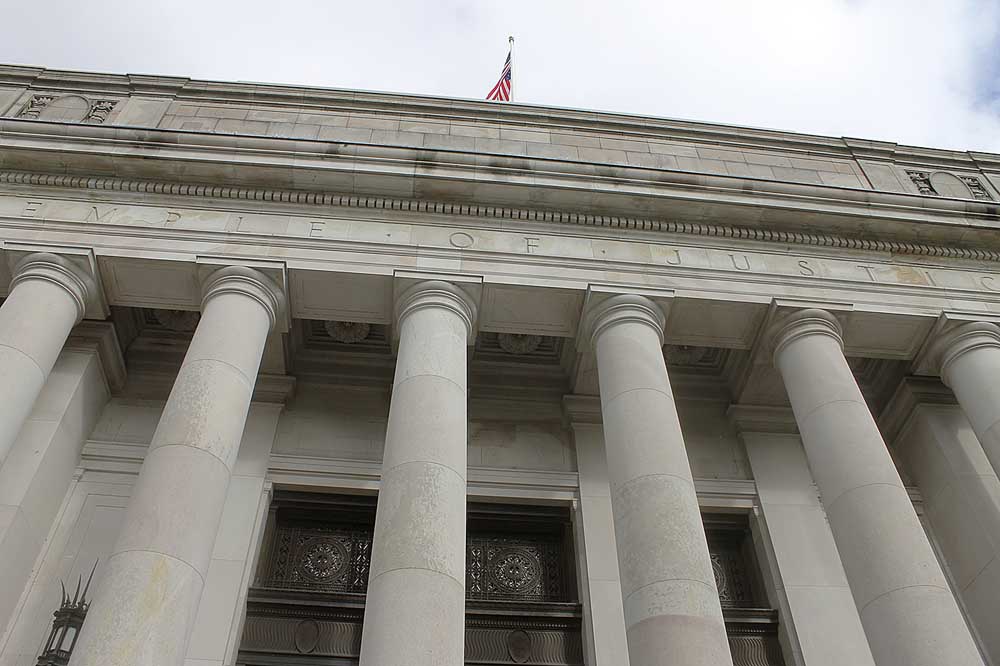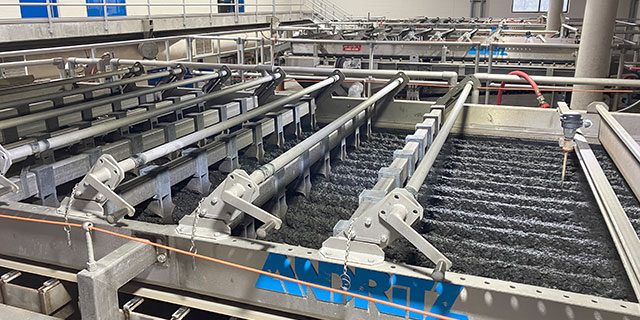Washington lawsuit asks high court to rein in Inslee veto
Published 5:15 pm Sunday, January 2, 2022

- The Washington Supreme Court heard an appeal Sept. 28 of an $18 million fine against a trade group representing food and beverage makers for campaign reporting violations.
The Washington Supreme Court will have a second chance to further define the governor’s veto powers if it takes up a case stemming from Gov. Jay Inslee’s opposition in 2019 of three projects meant to protect farmland.
The court will meet in conference Jan. 4 to consider whether to hear an appeal filed by the Building Industry Association of Washington.
The BIAW claims Inslee unlawfully vetoed a subsection of an orca recovery bill that made higher fines on builders for disturbing riverbeds contingent on the three projects.
In another veto-related suit filed by the Legislature, the court ruled 7-2 in November that Inslee overstepped his powers by partially vetoing a transportation bill in 2019.
“There are really strong parallels,” BIAW attorney Jackson Maynard Jr. said Thursday. “It presents exactly the same issues.”
Washington governors, unlike presidents, have partial veto powers. They can veto sections of bills and individual expenditures.
Lawsuits against Inslee claim that he has vetoed less than entire sections, in effect editing bills and changing what lawmakers intended.
In defending Inslee, state attorneys have argued that lawmakers have written bills in a way that forces him to accept policies he opposes or else veto bills he otherwise likes.
The Legislature in December sued again, claiming Inslee’s partial veto of a low-carbon fuel bill was unconstitutional. The suit is pending in Thurston County Superior Court.
The BIAW’s lawsuit won’t resurrect the river projects, which were in a separate section of the orca bill. The partial veto frustrated landowners losing land to river currents.
The projects raised the possibility of taking gravel from rivers in Grays Harbor, Snohomish and Whatcom counties. Inslee said the projects didn’t belong in a bill to benefit orcas.
Lawmakers had sought to make the gravel-removal projects veto-proof by tying them to the higher fines for disturbing river beds during construction projects.
Inslee responded by vetoing the subsection that barred higher fines if the farmland-protection projects didn’t go forward.
At Inslee’s order, the Department of Fish and Wildlife went ahead and raised fines to $10,000 a day from $100 a day.
The BIAW sued, claiming the veto and higher fines were illegal. A lower appeals court ruled BIAW didn’t have standing to sue because its members haven’t actually been hurt.
“If the decision from the court of appeals stands, it will be much harder for groups to file challenges because you will actually have to wait for some draconian punishment,” Maynard said.
The appeals court didn’t rule on whether the veto or higher fines were legal.
The attorney general’s office is asking the Supreme Court to not hear BIAW’s appeal. The attorney general said the Legislature and Inslee should sort out the governor’s veto powers.
“The Legislature is fully capable of challenging a veto it believes has infringed on its legislative powers,” the attorney general argued in a court filing.
Maynard said the court should not limit veto challenges to legislators.
“What if you have, for whatever reason, a Legislature that is is intimidated by the governor?” he asked.






